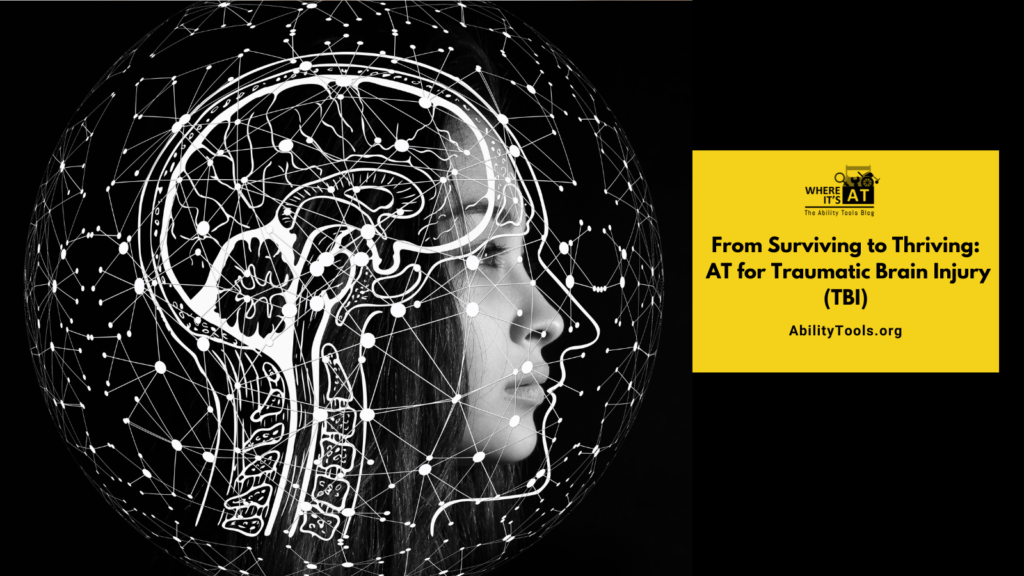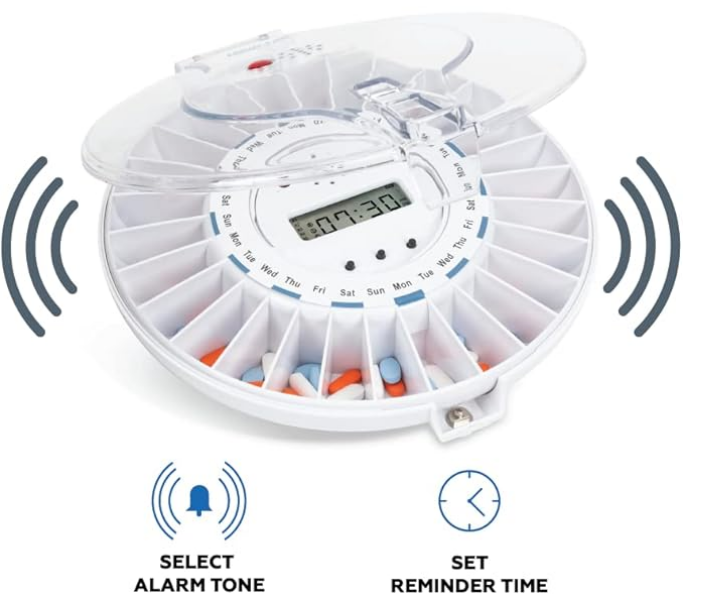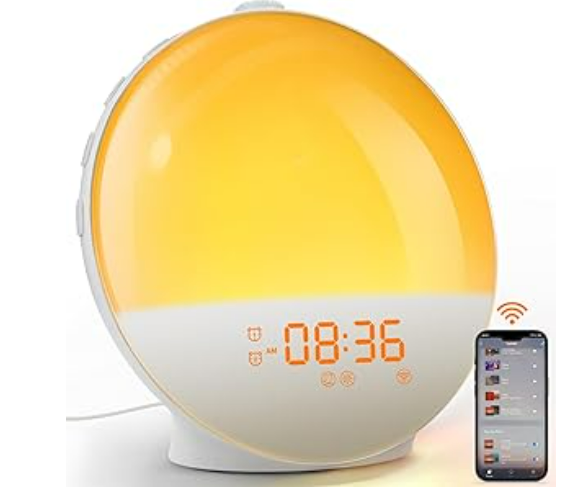Traumatic Brain Injury (TBI) is a complex condition that can profoundly impact an individual’s life, often requiring a multifaceted approach to rehabilitation and daily living. With advancements in technology, Assistive Technology (AT) devices have become invaluable tools in helping those with TBI support their needs more effectively. Join us as the Ability Tools Team explores incorporating specific devices tailored to common TBI symptoms in order to enhance quality of life and support individuals on their journey to maintaining independence.
Understanding TBI
According to the National Institute of Neurological Disorders and Stroke, “a traumatic brain injury (TBI) can be caused by a forceful bump, blow, or jolt to the head or body, or from an object that pierces the skull and enters the brain. Not all blows or jolts to the head result in a TBI. Some types of TBI can cause temporary or short-term problems with normal brain function, including problems with how the person thinks, understands, moves, communicates, and acts. More serious TBI can lead to severe and permanent disability and even death. Some injuries are considered primary, meaning the damage is immediate. Other outcomes of TBI can be secondary, meaning they can occur gradually over the course of hours, days, or weeks later.”
Common Symptoms of TBI and How AT Devices Can Help
Cognitive
Support needs for memory, concentration, and attention stand out prominently. Smartpens and reminder apps have been identified as effective tools. Smartpens can enhance note-taking experiences by recording audio and linking it to handwritten notes, while reminder apps can help manage schedules and set reminders for important tasks. Utilize smart home assistants like Amazon Alexa or Google Nest Mini and alarm-equipped medication dispensers for organizing pills and receiving timely reminders and caregiver notifications for missed doses, ensuring efficient medication management. Check out our top 5 picks for medication reminders below.
- Medication Dispenser with Automatic Lock Box
- Smart WiFi Pill Dispenser
- Smart Pill Bottle Cap
- Take-n-Slide Reusable Pill Trackers
- Scratch-A-Dose Medication Reminder Stickers
Sensory and Physical
Vision and hearing loss, along with mobility support needs, are common in individuals who have Traumatic Brain Injuries (TBI), impacting their ability to navigate and interact with their environment. Both handheld magnifiers as well as screen magnifiers aid those with vision loss by enlarging text and images on digital screens, enhancing visibility, and making digital content more accessible. For individuals experiencing hearing loss or tinnitus, white noise machines can be incredibly beneficial. These devices produce soothing sounds that can help mask tinnitus, reduce distractions, and improve concentration. Additionally, various mobility aids, like portable suitcase ramps, can be kept near the entryway of a home or in a vehicle to safely get in and out of an area with a small number of steps. Transfer boards, Adapts Sling, sit-to-stand chairs, and electric lifts are designed to enhance mobility, offering support and independence to those with mobility support needs.
Leveraging smart home assistants can be used in a variety of ways to better navigate environments. Adjusting lighting levels through voice, mobile apps, or programmed settings to accommodate visual support needs. Set up alarms that can use light or vibration as well as sound to alert individuals with hearing disabilities to visitors, calls, or emergencies. Additionally, connecting with your local Device Loan and Demonstration Center can also provide free, short-term loans for up to 30 days, so you can try before you buy a smart home system. Through these technologies, individuals with TBI can achieve a greater sense of autonomy.
Communication and Behavioral Adjustments
Communication barriers and mood changes are prevalent in individuals living with traumatic brain injury (TBI), affecting their communication abilities and emotional well-being. Speech-generating devices offer a vital communication bridge for those with speech and communication disabilities, enabling them to express themselves more clearly and effectively. These devices can range from simple text-to-speech apps like those used in the Voice Options Program to complex systems that generate synthesized speech. A great, affordable tip is to use voice recording buttons for easier communication. First, identify and record essential phrases on programmable buttons. Label each clearly. Place the device within reach, ensuring you can effortlessly express yourself.
Verywell Mind shares their top list of the best mood tracking apps. These apps have emerged as useful tools for monitoring and managing mood swings, a common challenge post-TBI. By allowing users to log their emotions, triggers, and symptoms over time, these apps can help individuals and their healthcare providers identify patterns and develop strategies for mood stabilization. Below is a list of 5 useful meditation apps you may want to check out.
Sleep and Environmental Interactions
Sleep disturbances, along with sensitivity to light or sound, are common issues for those living with traumatic brain injury (TBI), significantly affecting their rest and daily comfort. Smart alarms similar to Dekala Sunrise Alarm Clock, Smart Wake Up Light are designed to wake individuals in a more natural and gentle manner, often through simulating sunrise or using vibrations, which can be particularly helpful for those with irregular sleep patterns or difficulty waking. Adaptive lighting, on the other hand, adjusts the brightness and color temperature of lights in the environment, which can be beneficial for individuals sensitive to light, creating a more comfortable and soothing atmosphere that promotes better sleep quality and overall well-being.
Living with TBI can present challenges, but through the use of assistive technology people can retain their independence and further improve their quality of life. From cognitive aids to sensory and mobility supports, AT is instrumental in addressing a multitude of symptoms of TBI. As we continue to witness innovations in this field, it’s clear that the potential for these technologies to transform lives is huge.







